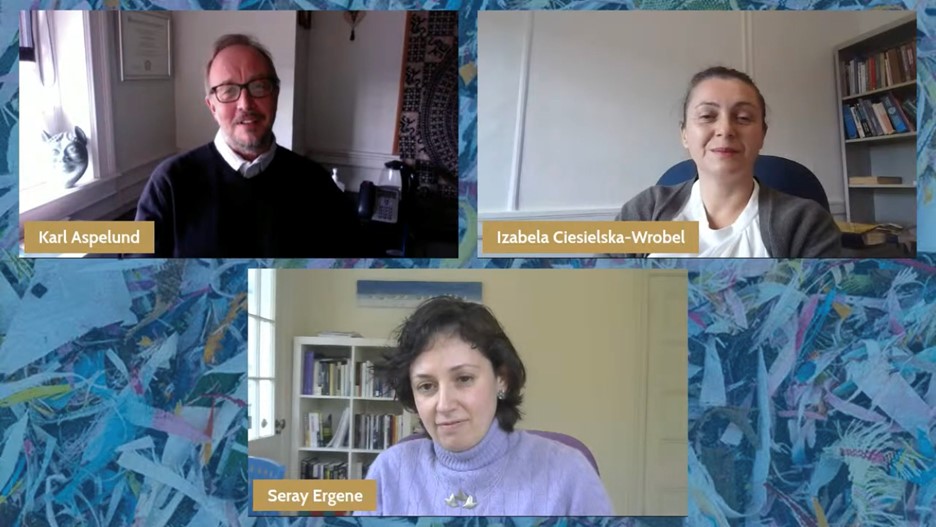
URI College of Business faculty discussed microplastics in the textile industry for URI Alumni’s Faculty Office Hours event. The panel, which consisted of Dr. Izabela Luiza Ciesielska-Wrobel and Dr. Seray Ergene, and moderator, Dr. Karl Aspelund analyzed the impacts of microplastics on the environment and implications for policymakers, industry leaders, and consumers.
Microplastics are plastic particles that are smaller than 5,000 micron and are found primarily in bodies of water. In our oceans, microplastics are the result of the degradation of larger pieces of plastic which is triggered by oceanic conditions such as water turbulence. Although a majority of microplastics result from degradation, microplastics can also enter our waterways through other avenues.
Microfibers, a textile byproduct, are another contributor to microplastics in our ocean. Textiles from synthetic materials like polyester and acrylic release microfibers when they are washed, and these microfibers end up in bodies of water. Due to their size, microplastics cannot easily be removed. Dr. Ciesielska-Wrobel explained that ocean water can be filtered to remove microplastics, but the process also removes microorganisms from their environment and disrupts the oceanic ecosystems.
Although filtering microfibers and microplastics out of water may not be feasible, there are other ways to reduce plastic pollution. One solution includes using washing machine filters that catch microfibers post-wash cycle. This method, although costly, is a way consumers can make an impact at home.
The panel encouraged policymakers and industry leaders to think about the environment as a stakeholder and change the way we consume plastics. Dr. Ergene noted that “some materials may be good for humans and durable for our use; but we also need to consider animals, plants, and the natural environment and the impact on them.”
As microplastics continue to be an issue for our oceans and environment, URI’s ongoing research aims to find solutions to the problem.

